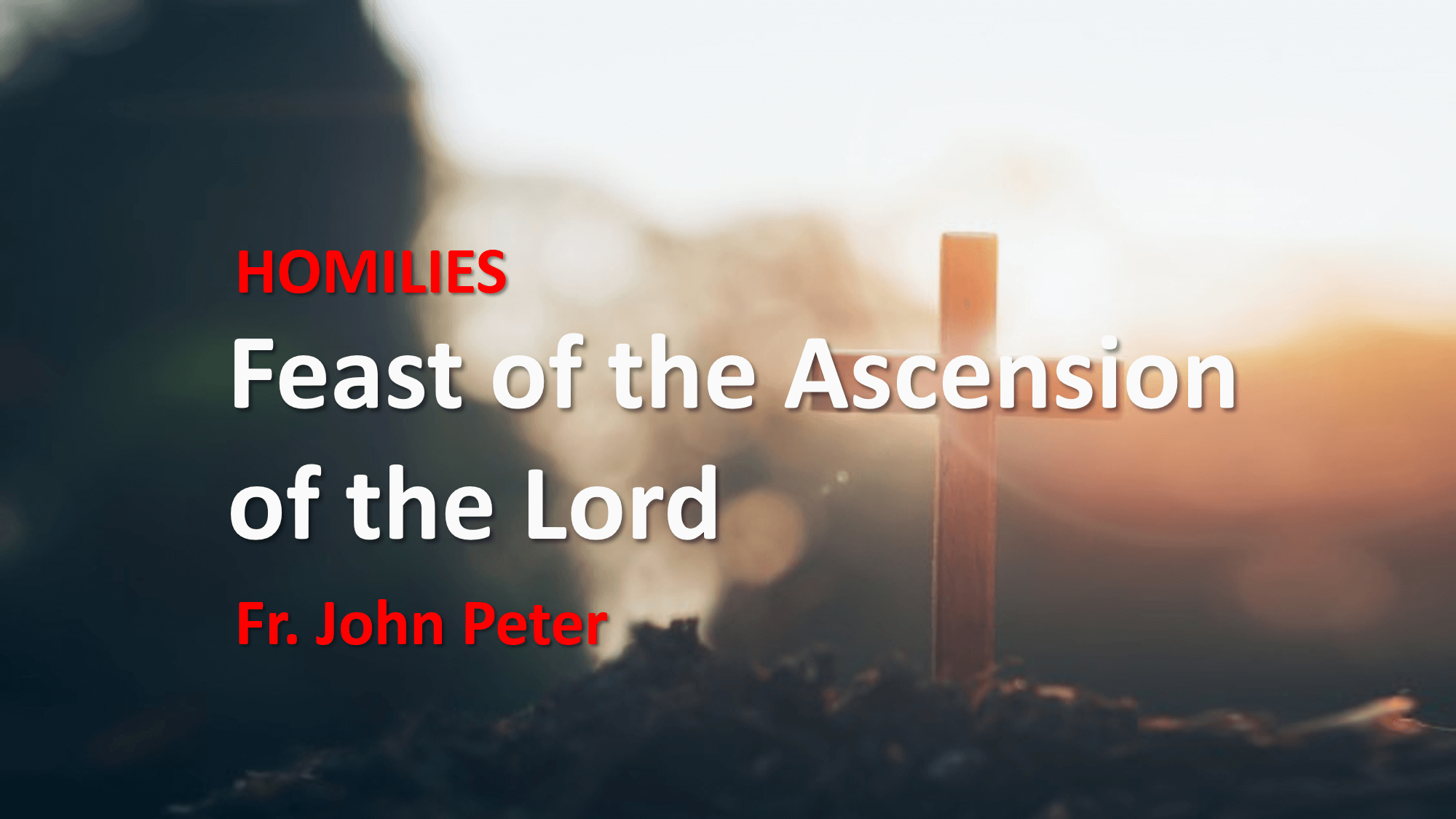I came across a story in a book recently of a little girl being shown around the Church of the Ascension. Looking up at a large painting of the Ascension in the church she asked, ‘Why is Jesus up in the air?’ Children have a way of asking direct questions.
The little girl’s question put me in mind of the question that is addressed to the disciples in today’s first reading, ‘Why are you men from Galilee standing here looking into the sky?’ The question suggests that the Ascension of Jesus should not prompt us to look into the sky, as if Jesus had somehow left us. Today’s gospel reading highlights not the absence of Jesus but his presence. The risen Jesus declares to his disciples, ‘Know that I am with you always, yes to the end of the world’.
The language of ascension expresses the change in the way that Jesus became present to his disciples. The ascension marks the end of that period when the risen Jesus appeared to his original disciples in a bodily, visible, form and the beginning of that period when he would be present to all disciples of every age in other forms. The ascension of Jesus did involve an element of departure for the original disciples but, more fundamentally, it ushered in a period of enduring presence for all future disciples which would last until the end of time. We know from our own human experience that departures can often create an opening for a new form of presence. Someone moves on from us but they remain present to us in another way. The relationship changes rather than ends. We come to discover that the ending of one phase of the relationship makes possible the beginning of new and more significant phases.
The risen Lord wanted to be present not just to his original disciples who had journeyed with him from Galilee to Jerusalem, but also to all future generations of disciples. For this to become possible, he had, in a sense, to take his leave of his original disciples, but only so that he could be present in a richer way to them, and to all those who would become his disciples through the missionary work of those original disciples, including all of us. Because of the Ascension, the risen Lord is as present to us now as he was to his first disciples. The promise of the risen Jesus in the gospel reading, ‘Know that I am with you’, is addressed not only to the first disciples but to us all. Jesus speaks thereof being present ‘always, to the end of time’. He was looking beyond the original disciples to the generations of disciples that would follow them. That is why the feast of the Ascension is a feast that all of us can really take to heart. It is very much our feast, the feast of the Lord’s presence to us, today, in this place and at this time. Saint Paul expresses this sense of the risen Lord’s presence to all generations of believers at the end of today’s second reading. He speaks of Jesus as the head of the church, which is his body, the fullness of him who fills the whole creation’. The risen Lord fills the whole creation, says Paul, but the church, the community of believers, is the fullness of his presence. That is why, for all its imperfections, we need the church, we need each other, because it is there above all, in the community of believers, that we meet the risen Lord in all his fullness.
We need each other as disciples, we need the church, but more than that, we need to make disciples of others, we need to help the church to grow. This was the commission that the risen Lord gave to his first disciples according to the gospel reading, ‘Go, make disciples of all the nations, baptizing them… teach them…’. That commission is given to us all. We all have some responsibility for making other disciples, for helping others to meet the Lord. As we engage in that task, we have the Lord’s promise that he will be with us. He will be working through us if we give him the opportunity. We have another version of the Lord’s promise to be with us in today’s first reading, ‘you will receive power when the Holy Spirit comes upon you, and then you will be my witnesses’. The Lord is with us through the Holy Spirit and the Spirit works in our lives to empower us to be the Lord’s witnesses to others. We will each witness to the Lord in a different way, because the Spirit empowers each of us in a very unique way, in accordance with our own distinctive gifts, temperament and personality. The Spirit will empower one person to witness to the Lord perhaps through their gift of poetry, another person through their gift of song, another through their gift of practical service of others, another through their artistic gifts or their gift for discovery. In that sense, the Lord, through the Spirit, is at work and present all around us. We don’t have to look into the sky, although we can get a wonderful sense of the Lord’s presence there too. We just have to look beside us, before us, behind us, within us, on our right and on our left, all around us, in the words of the well-known hymn, Christ is beside me. Amen
Fr. John Peter
Kigoowa Parish.









